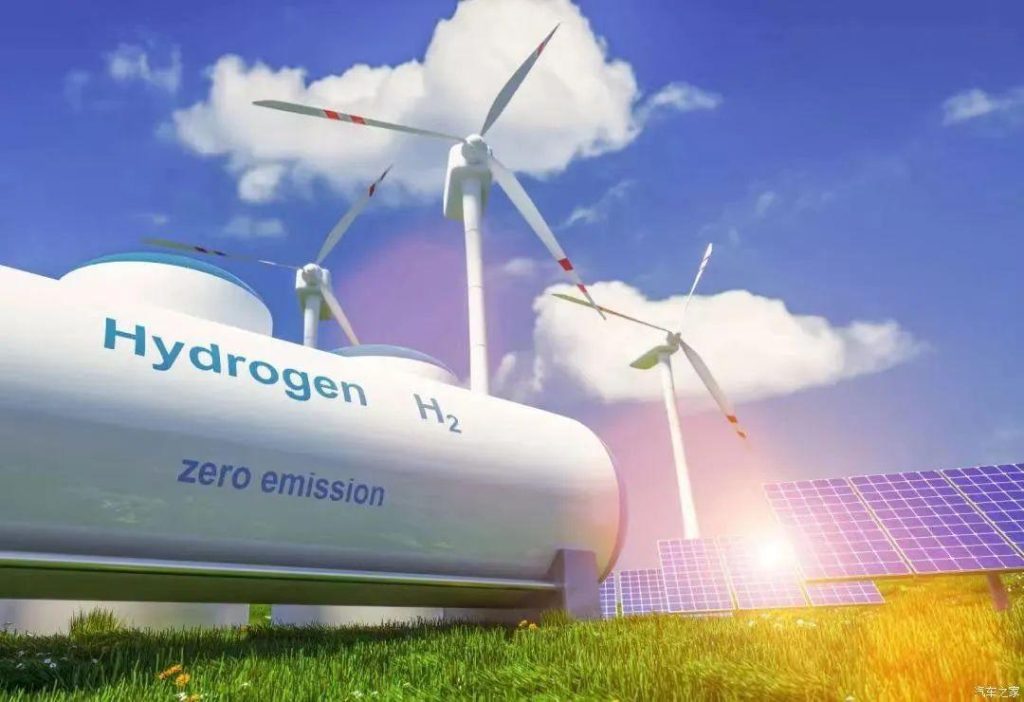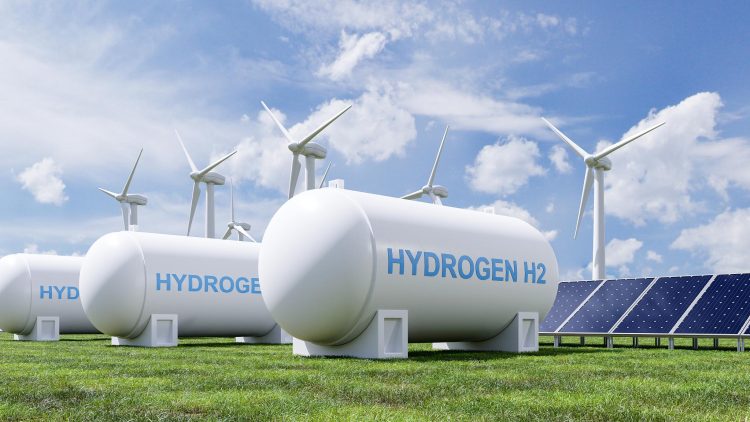Introduction
As the world grapples with the environmental consequences of fossil fuel consumption and the growing urgency to address climate change, the search for sustainable and clean energy sources has never been more critical. Among the many renewable energy options emerging today, hydrogen energy stands out as a promising solution. Hydrogen, when used as an energy source, emits only water vapor as a byproduct, making it one of the cleanest fuels available.
Hydrogen energy technology is often touted as a key player in the transition to a low-carbon future. It has the potential to provide sustainable energy for a variety of sectors, from transportation to industrial applications, and may help reduce air pollution, combat climate change, and contribute to healthier, more sustainable living. But is hydrogen really the best energy choice for the future? Can it truly meet the demand for clean, reliable, and affordable energy while promoting health and environmental benefits?
This article explores the potential of hydrogen energy as a viable and eco-friendly energy solution, examining its benefits, challenges, and how it could revolutionize the way we generate and consume energy for a cleaner and healthier future.
1. Understanding Hydrogen Energy
A. What is Hydrogen Energy?
Hydrogen energy refers to the use of hydrogen gas as a fuel to generate electricity or heat. Hydrogen can be used in fuel cells, which produce electricity through a chemical reaction between hydrogen and oxygen, emitting only water vapor as a byproduct. Hydrogen can also be burned as a fuel for combustion engines, although this method is less efficient than using it in fuel cells.
- Hydrogen Fuel Cells: These are devices that convert the chemical energy of hydrogen into electricity, heat, and water. Fuel cells are used in various applications, including vehicles, stationary power generation, and backup power systems.
- Hydrogen Combustion: Hydrogen can be burned in traditional combustion engines, similar to how gasoline or natural gas is used. However, fuel cells are more efficient and environmentally friendly than combustion.
B. Hydrogen Production Methods
The production of hydrogen is crucial to understanding its sustainability. Currently, there are several methods to produce hydrogen, each with varying environmental impacts:
- Grey Hydrogen: Produced from natural gas through a process called steam methane reforming (SMR). This method releases carbon dioxide (CO2), making it a less environmentally friendly option.
- Blue Hydrogen: Also produced from natural gas, but with carbon capture and storage (CCS) technology that traps CO2 emissions, making it cleaner than grey hydrogen.
- Green Hydrogen: Produced by electrolysis, using renewable electricity (from wind, solar, or hydropower) to split water into hydrogen and oxygen. This is the most environmentally friendly form of hydrogen production, as it generates no greenhouse gas emissions.
2. The Environmental and Health Benefits of Hydrogen Energy
A. Reduction of Greenhouse Gas Emissions
One of the most significant environmental advantages of hydrogen energy is its ability to reduce greenhouse gas emissions. When used in fuel cells, hydrogen produces only water vapor and heat, making it a zero-emission fuel. By replacing fossil fuels in sectors like transportation, electricity generation, and industry, hydrogen energy can significantly reduce carbon dioxide (CO2) emissions and help mitigate climate change.
- Decarbonizing the Transport Sector: Hydrogen fuel cells have the potential to replace diesel and gasoline engines in heavy-duty vehicles, buses, trucks, and even trains, which are difficult to electrify using batteries alone. This could reduce the carbon footprint of the transportation sector, which is one of the largest contributors to global greenhouse gas emissions.
- Industrial Applications: Hydrogen can also be used in industrial processes, such as steel production and chemical manufacturing, where high temperatures are required. Using hydrogen instead of coal or natural gas could drastically reduce emissions in these sectors.
B. Improved Air Quality
Unlike fossil fuels, hydrogen combustion or fuel cell reactions do not release harmful pollutants like particulate matter, nitrogen oxides (NOx), or sulfur dioxide (SO2) into the air. These pollutants are known to contribute to air pollution, smog, respiratory problems, and cardiovascular diseases. By replacing conventional fuels with hydrogen, we can significantly improve urban air quality, reduce respiratory illnesses, and promote public health.
- Cleaner Urban Environments: Hydrogen-powered vehicles and energy systems can help reduce the levels of harmful pollutants in cities, improving air quality and enhancing the quality of life for urban populations.
- Health Benefits: Reducing air pollution from vehicles and industrial sources can decrease the incidence of asthma, lung cancer, heart disease, and other health issues related to air pollution.
C. Reducing Dependence on Fossil Fuels
Hydrogen energy can reduce our reliance on fossil fuels, which are not only finite but also have severe environmental and geopolitical impacts. By shifting to hydrogen, especially green hydrogen, we can move towards energy independence, reduce global carbon emissions, and promote sustainable energy sources.
- Energy Security: Hydrogen can be produced from a wide range of renewable resources, including solar, wind, and water, offering a sustainable, decentralized energy supply that is not vulnerable to geopolitical conflicts or market fluctuations in fossil fuels.
- Renewable Energy Integration: Green hydrogen production can help store excess renewable energy generated during times of high supply (such as sunny or windy days) and release it during periods of high demand, balancing supply and demand in the energy grid.
3. Hydrogen Energy’s Role in a Sustainable Future
A. Hydrogen in the Power Sector
Hydrogen has the potential to play a significant role in the power sector, providing backup power, balancing the grid, and serving as an energy carrier for renewables. In areas with high renewable energy penetration, hydrogen can store surplus energy produced by wind and solar farms, which can then be used when renewable generation is low.
- Grid Stability and Storage: Hydrogen can be stored in large quantities, providing a means of long-term energy storage. It can be used in fuel cells or turbines to generate electricity when demand exceeds supply, ensuring a stable energy grid.
- Backup Power: Hydrogen-powered generators and fuel cells could be used for backup power in areas prone to blackouts or in remote locations without access to a reliable grid.
B. Hydrogen in Transportation
Hydrogen-powered vehicles offer a promising alternative to battery electric vehicles (EVs), particularly in applications where long-range driving, fast refueling, and heavy loads are important. Hydrogen fuel cell vehicles (FCVs) are already in use in certain regions, such as Japan and parts of Europe, and could significantly reduce carbon emissions from the transportation sector.
- Heavy-Duty Transportation: Hydrogen is particularly well-suited for heavy-duty transport, including trucks, buses, and trains, which require long ranges and fast refueling times. Hydrogen-powered trucks can carry large loads over long distances without emitting harmful pollutants.
- Air and Maritime Transport: Hydrogen can also be used in aviation and maritime industries to reduce the carbon footprint of these energy-intensive sectors.
C. Hydrogen for Industry and Heating
Hydrogen can replace fossil fuels in industrial processes, such as the production of cement, steel, and chemicals, where high temperatures are required. It can also be used for heating, providing a clean alternative to natural gas.
- Decarbonizing Industry: Hydrogen can be used in industries to reduce carbon emissions from processes that are difficult to electrify or where high heat is required. For example, hydrogen can replace coke in the steel industry, reducing the need for carbon-intensive inputs.
- Residential Heating: Hydrogen can be used for residential heating in the form of hydrogen boilers or in fuel cells, offering a cleaner alternative to natural gas for home heating.

4. Challenges and Limitations of Hydrogen Energy
A. Production Costs and Scalability
Currently, green hydrogen production is expensive compared to conventional hydrogen production methods. The cost of electrolysis, especially when using renewable energy sources, is high, making it less competitive with fossil fuels in some markets. However, as renewable energy costs continue to fall and electrolysis technology improves, the cost of green hydrogen is expected to decrease.
B. Infrastructure Development
The widespread adoption of hydrogen energy requires significant investment in infrastructure, including hydrogen production, storage, transportation, and refueling stations. Building this infrastructure is costly and time-consuming, but it is necessary to enable hydrogen to become a mainstream energy solution.
C. Storage and Distribution
Storing and transporting hydrogen is challenging because it is the smallest and lightest element, making it difficult to compress and store at high densities. The development of efficient storage technologies and distribution networks is essential for hydrogen to become a practical solution for widespread use.
5. Conclusion: The Future of Hydrogen Energy
Hydrogen energy has the potential to revolutionize the way we generate and consume energy, offering a clean, sustainable alternative to fossil fuels while improving air quality and public health. It can play a pivotal role in decarbonizing multiple sectors, including transportation, industry, and power generation, and help mitigate the effects of climate change.
While challenges remain, particularly in terms of cost, infrastructure, and storage, the continued development of hydrogen technologies and the expansion of renewable energy sources will make hydrogen a key player in the transition to a low-carbon economy. As research and investments in hydrogen energy grow, it could very well become one of the best energy choices for a healthier, more sustainable future.











































Discussion about this post